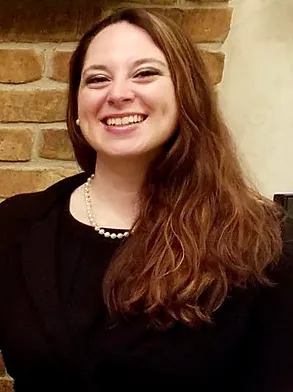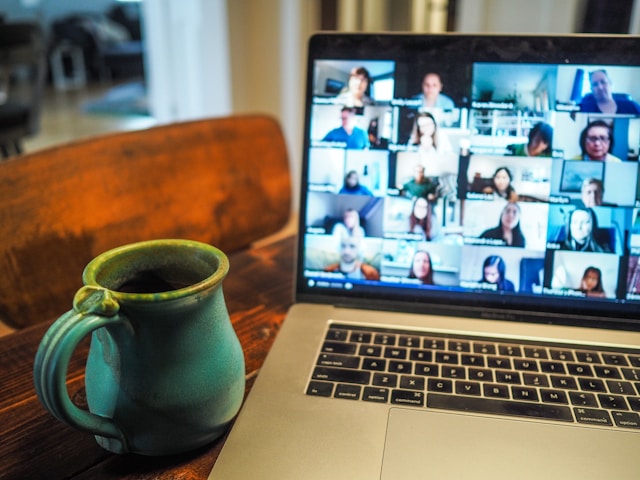Today, our world is more interconnected than ever before. This means that no matter where we are physically located, we will most likely be able to communicate with other people in various places. We live in a world where people can work and learn anywhere, as long as they have access to the internet. This means that I can live in the United States, go to school in a different state than I currently live in, and complete an international internship in Morocco, which is exactly what I have done this semester. Living in such an interconnected world means there are opportunities for my generation that my grandparent’s generation never would have thought possible. One such opportunity was presented to me this past semester, completing a virtual internship with an international nonprofit organization. Resilient Communities, located in Tameslouht, Morocco, gave me the opportunity to complete a special project internship in workshop development and facilitation. This internship has been completely outside of my comfort zone but has allowed me to develop a wealth of professional skills. I have developed most of my skills during the various workshops I have facilitated during my internship. Facilitating a Zoom workshop requires preparation, practice, public speaking skills, and cross-cultural communication awareness. In this article, I will describe how to facilitate a Zoom workshop for those who have not done so before.
To help me best describe how to facilitate a Zoom workshop, I enlisted the help of my internship supervisor and the Head of Training and Development at Resilient Communities, N.G. Rees. The following longform interview was conducted on November 10, 2021.
Please, explain in your own words what Resilient Communities does, and why it is important.
Resilient Communities at its inception was about doing on the ground projects in small communities with the idea of building resilience within those communities. Now, Resilient Communities focuses more on education and skill sharing. For example, Resilient Communities runs an internship program that prioritizes the education and creation of workshops. Since COVID-19, virtual workshops have been normalized, but after health restrictions are lifted, we will most likely go back to in-person workshops as the regular form of delivery. I don’t see my mission within Resilient Communities changing much when that happens.
How important is the internship program at Resilient Communities to its overall mission?
Now, as opposed to when Resilient Communities was started, the internship program is one way we express our goal of education and skill sharing. The workshop process itself satisfies goals of takeaways and skills needed. What we are doing when we have an internship program is we are creating people who are the kinds of NGO leaders we want to work with in the future. As that day approaches, we will be able to reap the fruits of our current labors.
What makes Zoom workshops better/worse or more/less effective than in person workshops? Are they different from in person workshops?
Some disadvantages are that the amount of people per workshop is limited, the amount of connections are limited, and cross-cultural communication in a workshop is limited. Cross-cultural communication especially is limited, because we don’t see hand gestures and speaker talking time is limited, just the time lost on technicalities. With that said, the fact that I can have someone from Turkey in a workshop when I am in Morocco and interns located in the U.S. make the international nature of Zoom workshops outweigh the disadvantages. There are more opportunities.
Are there any qualifications a Zoom workshop facilitator should possess?
Whether professional or personal, the biggest skills are classic public speaking, pausing instead of “um,” knowing the audience, and when to cede to a participant and when to take the floor. Workshop facilitation skills are teaching skills. I think if I had to give a “sound bite,” the biggest skill for facilitators is knowing when to shut up, when to give the floor to a participant, and when to take it back.
How do you think a Zoom workshop facilitator should prepare for their workshops?
Definitely knowing the material. The facilitator doesn’t need to be a subject matter expert; they just need to be part of the discourse and know the vocabulary of the subject they are talking about. The facilitator should know the issues and questions that might come up during the workshop. I see this a lot in every specialty hobby when a person starts talking to their friends or family about the hobby. When I was a cross country runner at university, my grandfather loved to give me advice on how to run, and he weighed 300 lbs. Last time he ran, he did physical training for the Army Corps of Engineers in WWI. He wasn’t a part of the discourse; the language he would use proved he wasn’t a part of the cross country discourse of today. You find this with any specialized community that has ever existed, entering into the discourse and understanding what is taking place is crucial to your credibility within that community.
Practicing the workshop, doing it by yourself and with others, is extremely important preparation as well. This means knowing how to operate Zoom; it’s amateur to say you are a professional and then not know how to use tools. However, a superpower of this generation is that our first instinct is that most issues are googleable.
What are the most important things a Zoom workshop facilitator should know?
How to use the platform, i.e., Zoom, Teams, Skype, etc.
What are some common mistakes Zoom workshop facilitators make and how can they fix them?
If we broaden this to all workshop facilitation, the chief mistake made is that there is no takeaway. If there is no takeaway, you are losing your participants, because they feel that their time has been wasted. It is a betrayal of trust between the facilitator and participant; the facilitator is likely to lose them midway through.
However, if the workshop is created well, I would say a lot of the facilitator mistakes I see are overtalking about things that could be questions elicited from participants. Facilitators will spend 20 mins talking about a subject when they could be having a discussion with the participants. The benefit of having a non-expert facilitator is they don’t dominate conversation and let participants give feedback. This justifies the facilitator internship position and has definite advantages.
I want to thank N.G. Rees for sharing his experiences working with an international nonprofit and for teaching me how to facilitate a productive and worthwhile Zoom workshop. An experienced and successful teacher or mentor is a must for anyone wanting to learn to conduct their own workshops, because in order to improve my facilitation skills, I needed constructive criticism from someone who knew what to look for. Most of these critiques centered around public speaking skills and cross-cultural communication.
After reviewing, making notes, and completing background research on a topic, I then present each workshop to a group of practice participants. This allows me to test the flow of each workshop and make additional adjustments to the material before facilitating the workshop with actual participants. However, after facilitating the workshops, I always need to go back to the manuals and presentations to make more edits based on feedback from my participants. A workshop is not a seminar; a workshop is a discussion started by the facilitator and designed to provide participants with a space to learn, ask questions, discuss topics, and practice a skill or produce a product. A workshop means that the participants leave the workshop with a highly refined skill or the knowledge to reproduce a product on their own. As long as the facilitator has basic knowledge of the subject matter, can hold space for participants in a respectful manner, and knows how to use the platform, facilitating a Zoom workshop is a skill that many people should be able to master.








